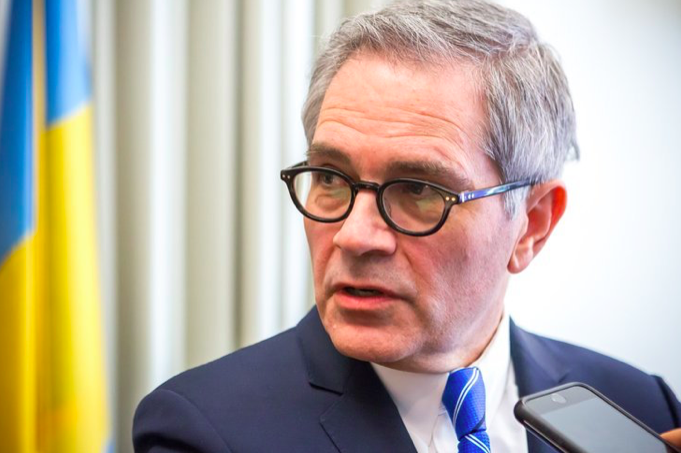
March 31, 2020
 Thom Carroll/for PhillyVoice
Thom Carroll/for PhillyVoice
Amid a spike in shootings during Philadelphia's coronavirus restrictions, Mayor Jim Kenney has urged District Attorney Larry Krasner to prosecute gun cases more strictly in the city.
Philadelphia Mayor Jim Kenney urged District Attorney Larry Krasner to take a stronger stance on the prosecution of gun-related cases in the city, saying recent shootings indicate a need for tougher standards during the coronavirus pandemic.
Kenney pointed to a shooting in North Philadelphia on Monday night that left five people wounded, including a toddler and two teenagers. The shooting is one of several that have occurred in the city despite the introduction of stay-at-home orders to prevent the spread of COVID-19.
"We are calling on the district attorney to vigorously enforce all firearm-related charges during this time of crisis," Kenney said. "It is imperative that we send a clear message: gun violence will not be taken lightly. That is a message the DA can reinforce in his office’s handling of all such cases going forward."
Krasner has pushed to limit the city's prison population during the pandemic in order to reduce illness among inmates and the law enforcement community. His office worked closely with the police department to amend arrest policies with the goal of keeping people out of prison, as long as they can reasonably be deemed safe to remain free.
Cases of COVID-19 have been reported within the city's department of corrections and among inmates, though specific numbers have not been disclosed.
“Jails and prisons are landlocked cruise ships, with people in extremely close quarters and supplies such as soap and sanitation products drying up," Krasner said earlier this month. "Safely and swiftly depopulating corrections facilities is a matter of life or death for all of us."
Kenney said Tuesday that his office has communicated its concerns about gun violence to Krasner. While the cases are being prosecuted, Kenney suggested that too many are being handled without incarceration.
"We need more people who are carrying guns on the street illegally, and are carrying guns with a record, to be segregated from the community," Kenney said. "That's the reason why our shooting spike has happened and the reason why our homicide spike has happened. I believe something needs to be done differently than what we're doing."
Police Commissioner Danielle Outlaw, who also appeared at Tuesday's press briefing, stopped short of attributing the recent spike in homicides directly to a lack of strong prosecution. The increase has been observed since 2017, she said.
In the context of the coronavirus pandemic, however, practically all crime categories have been down with the exception of shootings.
"There has to be teeth," Outlaw said. "There needs to be consequences. We can't see a revolving door. If people are released from incarceration, we need to make sure that there is strong supervision or programs aligned with them. But at the same time, there has to be teeth. Bottom line."
Managing director Brian Abernathy clarified the administration's specific concerns with the district attorney's policies.
"We're not saying the DA is not prosecuting gun crimes. In fact, he is prosecuting gun crimes," Abernathy said. "I think we are concerned about the final disposition of those cases, which we have said to him, and whether individuals are receiving bail as they wait for trial, especially in this current climate. We have a number of questions about where people end up and how they're segregated from the community — around guns specifically."
Philadelphia Health Commissioner Dr. Thomas Farley announced 242 new cases of COVID-19, the highest daily total since the start of the pandemic. Five new deaths brought the city's total to 14, including at least 7 nursing home residents.
Among the city's total cases, 87 have been hospitalized and 88 were known to be health care workers.
Farley reiterated that while 85% of cases are currently missing information on race, a trend among recent cases has shown an uptick in black residents testing positive.
"I don't want to put too much emphasis on this, but I do want to drive home the point that this virus does not discriminate," Farley said. "Every racial group, every person in this city is at risk."
As more case investigation forms are provided to the city, demographic data may be more readily available for insight and analysis, Farley said.
In reference to the city's interactive map of COVID-19 cases, Farley said there simply isn't enough testing completed in each ZIP code to confidently determine whether an area is a hot spot. While testing capacity has increased, any substantial boost in overall testing numbers will require more swabs, personal protective equipment and lab capacity.
Farley said most Philadelphia residents appear to be following the city's social distancing guidelines, but there remain some neighborhoods where groups and gatherings in public have not subsided.
Police protocol doesn't give officers broad authority to conduct stops simply on account of social distancing. Appropriate suspicion is required for pedestrian stops, and officers can write citations that carry fines for disorderly conduct or failure to disperse.
Abernathy pointed to Kensington as an area where social distancing has not gained traction.
"The issues in Kensington mean we need new tactics," Abernathy said. "Simply warning folks or even giving citations may not be enough. We're going to need to provide very specific locations for people to go, as well as making sure that those areas they do go also practice appropriate social distancing."